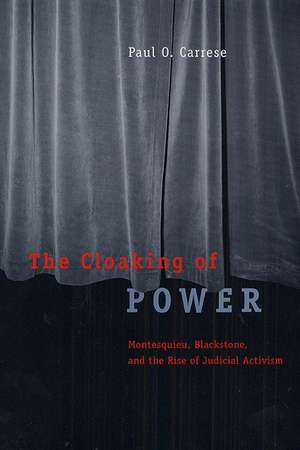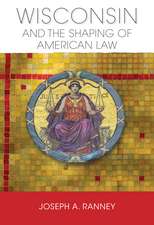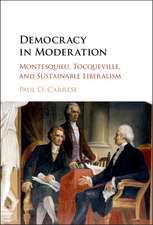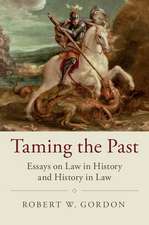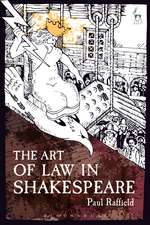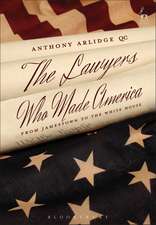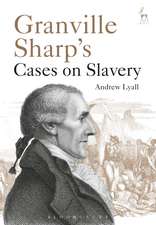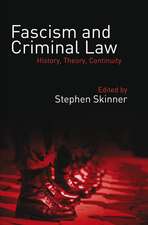The Cloaking of Power: Montesquieu, Blackstone, and the Rise of Judicial Activism: Emersion: Emergent Village resources for communities of faith
Autor Paul O. Carreseen Limba Engleză Hardback – iun 2003
How did the US judiciary become so powerful—powerful enough that state and federal judges once vied to decide a presidential election? What does this prominence mean for the law, constitutionalism, and liberal democracy? In The Cloaking of Power, Paul O. Carrese provides a provocative analysis of the intellectual sources of today’s powerful judiciary, arguing that Montesquieu, in his Spirit of the Laws, first articulated a new conception of the separation of powers and strong but subtle courts. Montesquieu instructed statesmen to “cloak power” by placing judges at the center of politics, while concealing them behind juries and subtle reforms. Tracing this conception through Blackstone, Hamilton, and Tocqueville, Carrese shows how it led to the prominence of judges, courts, and lawyers in America today. But he places the blame for contemporary judicial activism squarely at the feet of Oliver Wendell Holmes Jr. and his jurisprudential revolution, which he believes to be the source of the now-prevalent view that judging is merely political.
To address this crisis, Carrese argues for a rediscovery of an independent judiciary—one that blends prudence and natural law with common law and that observes the moderate jurisprudence of Montesquieu and Blackstone, balancing abstract principles with realistic views of human nature and institutions. He also advocates for a return to the complex constitutionalism of the American founders and Tocqueville and for judges who understand their responsibility to elevate citizens above individualism, instructing them in law and right.
Din seria Emersion: Emergent Village resources for communities of faith
-
 Preț: 144.99 lei
Preț: 144.99 lei - 9%
 Preț: 352.50 lei
Preț: 352.50 lei -
 Preț: 307.55 lei
Preț: 307.55 lei -
 Preț: 146.50 lei
Preț: 146.50 lei - 8%
 Preț: 360.28 lei
Preț: 360.28 lei -
 Preț: 185.37 lei
Preț: 185.37 lei -
 Preț: 183.89 lei
Preț: 183.89 lei -
 Preț: 115.53 lei
Preț: 115.53 lei - 6%
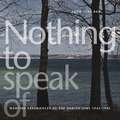 Preț: 324.95 lei
Preț: 324.95 lei - 8%
 Preț: 346.31 lei
Preț: 346.31 lei -
 Preț: 67.35 lei
Preț: 67.35 lei -
 Preț: 101.43 lei
Preț: 101.43 lei -
 Preț: 216.90 lei
Preț: 216.90 lei - 18%
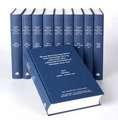 Preț: 2261.34 lei
Preț: 2261.34 lei -
 Preț: 215.52 lei
Preț: 215.52 lei -
 Preț: 167.85 lei
Preț: 167.85 lei -
 Preț: 179.04 lei
Preț: 179.04 lei - 12%
 Preț: 290.56 lei
Preț: 290.56 lei -
 Preț: 156.84 lei
Preț: 156.84 lei - 9%
 Preț: 353.24 lei
Preț: 353.24 lei -
 Preț: 186.09 lei
Preț: 186.09 lei -
 Preț: 176.49 lei
Preț: 176.49 lei -
 Preț: 133.99 lei
Preț: 133.99 lei -
 Preț: 144.80 lei
Preț: 144.80 lei - 18%
 Preț: 348.59 lei
Preț: 348.59 lei -
 Preț: 138.26 lei
Preț: 138.26 lei -
 Preț: 163.52 lei
Preț: 163.52 lei - 18%
 Preț: 502.35 lei
Preț: 502.35 lei -
 Preț: 182.98 lei
Preț: 182.98 lei -
 Preț: 208.55 lei
Preț: 208.55 lei -
 Preț: 279.55 lei
Preț: 279.55 lei - 8%
 Preț: 563.24 lei
Preț: 563.24 lei -
 Preț: 116.07 lei
Preț: 116.07 lei -
 Preț: 120.81 lei
Preț: 120.81 lei -
 Preț: 160.63 lei
Preț: 160.63 lei - 9%
 Preț: 352.77 lei
Preț: 352.77 lei -
 Preț: 106.35 lei
Preț: 106.35 lei -
 Preț: 273.93 lei
Preț: 273.93 lei -
 Preț: 316.40 lei
Preț: 316.40 lei -
 Preț: 548.71 lei
Preț: 548.71 lei -
 Preț: 138.81 lei
Preț: 138.81 lei -
 Preț: 152.25 lei
Preț: 152.25 lei -
 Preț: 229.92 lei
Preț: 229.92 lei -
 Preț: 94.22 lei
Preț: 94.22 lei -
 Preț: 203.53 lei
Preț: 203.53 lei -
 Preț: 145.41 lei
Preț: 145.41 lei - 8%
 Preț: 311.68 lei
Preț: 311.68 lei -
 Preț: 208.32 lei
Preț: 208.32 lei -
 Preț: 302.76 lei
Preț: 302.76 lei - 8%
 Preț: 565.01 lei
Preț: 565.01 lei
Preț: 485.64 lei
Preț vechi: 614.75 lei
-21% Nou
Puncte Express: 728
Preț estimativ în valută:
92.93€ • 101.35$ • 78.36£
92.93€ • 101.35$ • 78.36£
Carte indisponibilă temporar
Doresc să fiu notificat când acest titlu va fi disponibil:
Se trimite...
Preluare comenzi: 021 569.72.76
Specificații
ISBN-13: 9780226094823
ISBN-10: 0226094820
Pagini: 349
Dimensiuni: 152 x 229 x 25 mm
Greutate: 0.63 kg
Ediția:1
Editura: University of Chicago Press
Colecția University of Chicago Press
Seria Emersion: Emergent Village resources for communities of faith
ISBN-10: 0226094820
Pagini: 349
Dimensiuni: 152 x 229 x 25 mm
Greutate: 0.63 kg
Ediția:1
Editura: University of Chicago Press
Colecția University of Chicago Press
Seria Emersion: Emergent Village resources for communities of faith
Notă biografică
Paul O. Carrese is professor of political science at the United States Air Force Academy. He is coeditor of John Marshall’s The Life of George Washington and of Constitutionalism, Executive Power, and Popular Enlightenment. He lives in Air Force Academy, CO.
Cuprins
Acknowledgments
Notes on Texts
Introduction: The Subtle Judge and Moderate Liberalism
Part One: Montesquieu's Jurisprudence and New Judicial Power
1 Moderation Liberalism and Common Law: Spirt and Judicial Government
2 Moderate and Juridical Government: The Spirit of Constitutional Liberty
3 Projects for Reform: Due Process, National Spirit, and Liberal Toleration
4 The New Aristocracy of the Robe: History, Reason, and Judicial Prudence
Part Two: Blackstone and the Montesquieuan Constitution
5 Blackstone's Liberal Education for Law and Politics
6 A Gothic and Liberal Constitution: Blackstone's Tempting of Sovereignty
7 Blackstone, Lord Mansfield, and Common-Law Liberalism
Part Three: Montesquieu's Judicial Legacy in America
8 Hamilton's Common-Law Constitutionalism and Judicial Prudence
9 Tocqueville's Judicial Statesmanship
10 Holmes and Judicialized Liberalism
Conclusion: The Cloaking of Power and the Perpetuation of Constitutionalism
Notes on Texts
Introduction: The Subtle Judge and Moderate Liberalism
Part One: Montesquieu's Jurisprudence and New Judicial Power
1 Moderation Liberalism and Common Law: Spirt and Judicial Government
2 Moderate and Juridical Government: The Spirit of Constitutional Liberty
3 Projects for Reform: Due Process, National Spirit, and Liberal Toleration
4 The New Aristocracy of the Robe: History, Reason, and Judicial Prudence
Part Two: Blackstone and the Montesquieuan Constitution
5 Blackstone's Liberal Education for Law and Politics
6 A Gothic and Liberal Constitution: Blackstone's Tempting of Sovereignty
7 Blackstone, Lord Mansfield, and Common-Law Liberalism
Part Three: Montesquieu's Judicial Legacy in America
8 Hamilton's Common-Law Constitutionalism and Judicial Prudence
9 Tocqueville's Judicial Statesmanship
10 Holmes and Judicialized Liberalism
Conclusion: The Cloaking of Power and the Perpetuation of Constitutionalism
Recenzii
“An extraordinarily learned, subtle examination both of our current judicial crisis and of the original conception of judging and the separation of powers. . . . Paul O. Carrese has made a major and welcome contribution toward the necessary restoration of the rule of law and judicial prudence.”
“The Cloaking of Power is powerful in its conception, structure, and argument, evincing an impressive erudition, a consistently keen set of analytical skills, and an admirable degree of originality. . . . An impressive work of intellectual history and one that will well repay a careful reading and rereading.”
“This book of great erudition should greatly interest constitutional philosophers and other theorists of modern constitutionalism. Highly recommended.”
“A masterwork of intellectual and political history.”
